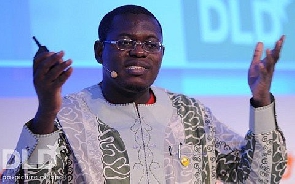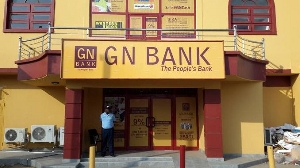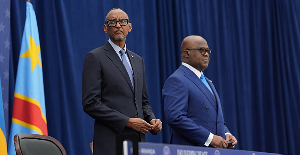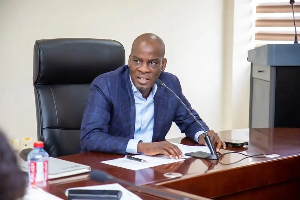As the Electoral Commission (EC) makes a strong case for its decision to compile a new voters register ahead of the 2020 general elections, Bright Simons, Vice President of think tank Imani Africa, vehemently objects, arguing that “the EC is engaged purely in a PR exercise to legitimise a decision they have already taken.”
While faulting the EC for failing to consult political parties, Civil Society Organisations (CSOs), activists, and other interest groups before taking the decision, Mr. Simons, on Newsfile, Saturday, attempted to foil the EC’s argument with four points.
For starters, Simons posits that aside the timing of the announcement, the EC has not been transparent although it decided on a new register in December last year.
“Nobody in media or civil society has an idea what is the research that has led to this outcome,” he said. Who were the people that were consulted?”
Simons believes it would be prudent if the EC adheres to the views of some 18 CSOs who have kicked against the compilation, stressing that, “The 18 CSOs represents, as far as I am concerned, one of the broadest institutional spectrums we have in this country from activists through to research-based organisations.”
On his second point, Simons says the architecture of the current biometric voting system was multi-component.
The EC earlier mentioned it “has begun an international competitive tender process in which the solutions were disaggregated – software, hardware and Data Centre. The Commission ensured, as a mandatory requirement, that the design of the system was based on a standard and open architecture. This will prevent vendor-lock in and ensure that the Commission takes control of its own affairs and limits the dependency on vendors. By insisting on this standard and open systems approach, the Commission would not be limited in future in terms of human resources and technology for its future expansion needs.”
It added that a letter from HSB, partners of previous vender STL dated 18th May 2018 read: “We would be like to announce that the items in the present BVRs are End-of-Life including laptops. This means that no components are available to repair the items. For purposes of availability, maintainability and compatibility in the future we recommend to purchase new BVRs.”
But Simons argues that, “it is not entirely true that the system as it was designed cannot be separated as far as vender design is concerned.”
According to him, after studying the architecture of the current system, he noticed in case there are problems with specific components of the system, they can be dealt with.
His third point was a counter to claims that the existing system has not been upgraded since 2011.
“You can’t tell us that all the devices started in 2011,” he says. “I have read all your budgets… and I have seen all your procurement plans and I know that you continue to buy equipment. In the Charlotte Osei affair, we saw that STL, for instance, had made offerings to replace some of these equipment the EC had gone ahead to make procurements when she abrogated and renegotiated. We know those numbers. We know what was purchased and we know the pricing.”
Finally, Simons suggests to the EC to take a policy decision to check the biometric devices in order to tackle the error rates the body has noticed.
He says: “To the extent that we have a system that is not 100% right, our way of determining whether we are improving or getting worse is to look at the conduct of the elections themselves.”
The opposition National Democratic Congress (NDC) as well as a coalition of Civil Society Organisations (CSOs) under the Ghana Anti-Corruption Coalition (GACC) oppose the collection of fresh data, stressing that the current one should rather be upgraded.
The NDC, for instance, has asserted that it is a sinister move by the EC to suppress votes in its strongholds and shore up those of the NPP in its strongholds. The party, at a presser, further mentioned that the cost involved is too high for the country, looking at the state of the economy.
General News of Saturday, 18 January 2020
Source: www.ghanaweb.com
New voters’ register: Bright Simons fights EC with 4 punches
Entertainment












